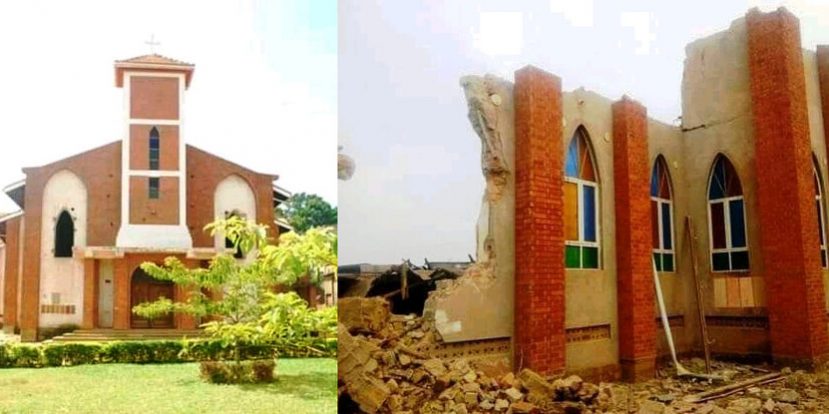WORSHIP PLACES INCLUDING MOSQUES FACE DEMOLITION.
This week began with sad news of razing to ground St. Peters Church Ndeeba. In passing the judgement against the registered trustees of Church of Uganda in High Court Civil Suit No.432/2008 (Dan Ssemwanga and 3 others Versus Nsubuga and 4 others), His Lordship Honourable Justice John Eudes Keitirima held;
 “Therefore, in the absence of evidence of compliance with the (trustee incorporation) Act, no person can be registered as proprietor of land and claim to be trustees of a community. The 3 defendants were therefore registered individually as proprietors and not trustees since they hadn’t complied with the trustee incorporation Act”
“Therefore, in the absence of evidence of compliance with the (trustee incorporation) Act, no person can be registered as proprietor of land and claim to be trustees of a community. The 3 defendants were therefore registered individually as proprietors and not trustees since they hadn’t complied with the trustee incorporation Act”
The judge’s interpretation with respect, fails to recognize the other forms of non-registrable tenures which are not covered under the Act. The judge misconstrues the scope and operation of the Trustees Incorporation Act and makes it mandatory and yet the Act is merely directory on the issue of incorporation. The judge did not also consider equitable trustees that are created where there is no compliance with the Act. Lastly, the judge failed to appreciate the background of land tenure applicable to the transaction at hand. Had the trial court reflected on these aspects, St. Peter’s Church would be standing.
Since the Church is gone, it is pertinent to reflect on the impact of the decision given the fact the Uganda’s legal system recognizes a precedent system where courts are bound by their decisions. In practice, many landlords donate their land to worshipers who appoint a management committee that spear heads construction of a mosque or church. This committee in most cases is not registered in accordance with the Trustee Incorporation Act. According to the decision, the donor, his children or grandchildren can repossess the land. If the decision is left standing, many worship places including mosques face demolition in the near future.
The other problem is that many religious structures including churches and mosques are registered under the Companies Act as companies limited by guarantee and not under the Trustee Incorporation Act. According to this court decision, these have no power to hold any property on behalf of worshipers unless registered under the Act. This not only attributes fraud to the religious leaders but the worshipers may have no claim in case of mismanagement.
We wish to stress that no amount of outcry can change a court decision once made. A court decision is binding whether correct or wrong. That’s why there are appeal and review procedures at various levels to correct absurd court decisions like the instant one. We all need to respect independence of courts and follow legally established procedures in overturning court decisions. Compensation although welcome will not change the impact of the decision on our jurisprudence. We appeal to affected parties to apply for a review of the judgement to save other places of worship from demolition in the near future.
- Umar Nyanzi, president MCJL.


